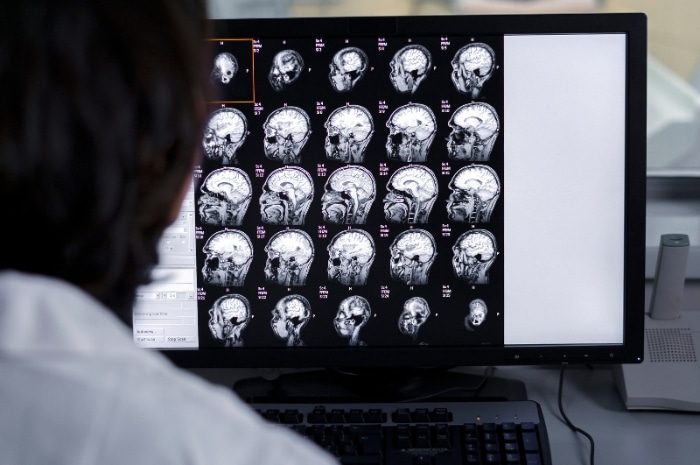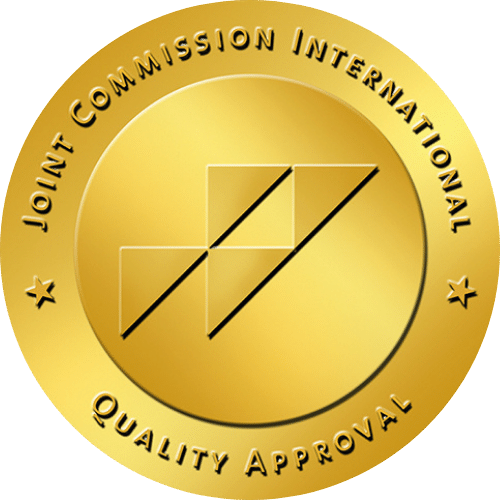4 min read
Amnesia Treatment: Effective Therapies and Medications for Memory Loss
Have you ever felt that moment of panic when you forget something important? Whether it’s a name, a face, or a significant event, occasional memory lapses happen to all of us. However, for some, memory loss becomes more than just an inconvenience. It becomes a condition known as amnesia, affecting everyday life in profound ways. If you or a loved one is struggling with memory issues, you may be asking, What can be an usefull amnesia treatment?
In this article, we’ll explore various forms of amnesia treatment, including therapies, medications, and support strategies that can help manage and improve memory loss. We’ll dive into how these treatments work and how they can make a real difference in daily life.

- What is amnesia?
- Types of amnesia
- Causes of amnesia
- Symptoms of amnesia
- Diagnosing amnesia
- Treatment options for amnesia
- Cognitive rehabilitation for amnesia
- Coping strategies for individuals with amnesia
- Support and resources for individuals with amnesia
- Conclusion
What is Amnesia and How Does it Affect Memory?
Imagine waking up one morning only to realize that memories you’ve cherished for years are now slipping away. Amnesia isn’t just forgetting where you put your keys or what you had for lunch—it’s a disruption in how your brain stores and recalls information, leading to significant memory loss.
There are two primary types of amnesia:
- Retrograde amnesia: The inability to recall memories from the past.
- Anterograde amnesia: Difficulty forming new memories while retaining old ones.
Both types affect memory differently, but both can have a profound impact on day-to-day life, making it difficult to remember key personal experiences or even learn new information.
Different Types of Amnesia and Their Causes
Amnesia doesn’t happen in a vacuum. It can arise from various neurological or psychological factors, and understanding these causes can help determine the best amnesia treatment for the condition.
Neurological Causes
Amnesia often results from damage to the brain or disruptions in brain activity. Here are some common neurological causes:
- Traumatic brain injuries (e.g., concussions or head trauma)
- Alzheimer’s disease and other forms of dementia
- Stroke, which can damage areas of the brain responsible for memory
- Brain tumors or aneurysms
- Seizures and epilepsy
- Infections, such as encephalitis
These conditions require treatment that focuses not just on amnesia itself but also on the underlying causes, often through medications, cognitive therapy, and lifestyle adjustments.
Not all memory issues are caused by neurological damage — in fact, mental health conditions like depression can significantly impact memory. [Learn how depression may contribute to memory loss here.]
Psychological Causes
In some cases, psychological stress or trauma can lead to amnesia. This type of memory loss, known as dissociative amnesia, occurs as the brain blocks out painful or traumatic memories as a coping mechanism. The amnesia treatment for this form is typically includes psychotherapy and counseling to address the underlying emotional or psychological factors.

Best Medications for Memory Loss and Amnesia
While there isn’t a one-size-fits-all solution, finding the best medication for memory loss depends on the underlying cause of the condition. Medications can play a key role in managing symptoms, especially when memory issues are linked to conditions like Alzheimer’s disease, vascular dementia, or brain injuries. Some of the most commonly prescribed drugs include cholinesterase inhibitors (such as donepezil, rivastigmine, and galantamine) and memantine, which help improve cognitive function or slow its decline in certain types of dementia.
In cases where memory loss is related to mood disorders, anxiety, or sleep problems, additional medications like antidepressants or anxiolytics may also be helpful. Ultimately, the best medication for memory loss should be tailored to each patient’s diagnosis and overall health.
Medications for Neurodegenerative Conditions
- Cholinesterase inhibitors, such as Donepezil, can help improve memory function for those with Alzheimer’s disease.
- Thiamine (Vitamin B1) supplementation is essential for individuals with Wernicke-Korsakoff syndrome, a type of amnesia caused by alcohol abuse.
- Antidepressants or anti-anxiety medications may also be used to treat the psychological causes of amnesia.
Although these medications help manage symptoms, they are usually combined with other treatments for better overall results.
Amnesia Therapy: Cognitive Rehabilitation and Support
While medications are useful, they are often not enough on their own. Cognitive rehabilitation is a critical component of treatment for amnesia. This type of therapy helps individuals compensate for memory loss and learn strategies to improve cognitive function.
Cognitive Rehabilitation
Cognitive rehabilitation helps people regain cognitive abilities and adapt to memory challenges. Common therapeutic exercises include:
- Memory games to practice recalling information.
- Techniques like mnemonics and visual cues to help with remembering events and tasks.
- Speech therapy to address communication difficulties that often accompany memory loss.
Through these exercises, patients can learn how to adapt to memory loss and improve their quality of life.

Occupational Therapy
In addition to cognitive therapy, occupational therapy can help patients incorporate memory aids into their daily routines. For example, smartphone apps, daily planners, and digital reminders can be extremely helpful. An occupational therapist can teach patients how to use these tools effectively, making it easier to stay organized and manage daily tasks.
Coping with Memory Disorders: Tips for Patients and Families
Living with amnesia can be challenging—for both the person affected and their loved ones. But there’s hope, and there are steps you can take to manage memory loss effectively.
For Caregivers and Family Members
If you’re helping a loved one with amnesia, it’s important to stay patient and offer consistent support. Here are some tips for caregiving:
- Offer a calm, supportive environment. Memory loss can be frustrating, so providing a steady and reassuring presence is key.
- Encourage the use of memory aids like notebooks, photo albums, and smartphone reminders.
- Create a routine. Routine can help reduce confusion and make daily activities more manageable.
Seeking Emotional Support
Amnesia can be isolating, but you don’t have to go through it alone. Support groups and counseling can be valuable resources for both patients and caregivers. Connecting with others who understand what you’re going through can help reduce feelings of isolation and provide practical tips for managing memory loss.
If you’re experiencing memory issues and want answers, don’t wait. A quick evaluation can help identify the cause and guide treatment.

Memory Aids and Tools for Amnesia
Memory aids and tools can make a significant difference in managing amnesia. Here’s a comparison of popular memory aids that can be helpful for individuals living with memory loss:
|
Memory Aid |
Features |
Advantages |
Disadvantages |
|
Smartphone Apps |
Customizable reminders, notes, calendars |
Easy to use, versatile, accessible |
Requires regular charging, may be complex for some |
|
Notebooks/Calendars |
Low-tech, portable, customizable |
Simple, low-cost, easy to carry around |
Requires manual effort, less flexible than tech |
|
Pill Organizers |
Pillboxes with labeled compartments |
Helps manage medication schedules |
Limited to medication reminders, not comprehensive |
|
Voice Recorders |
Voice memos to record thoughts or events |
Can be used on the go, hands-free |
Requires remembering to record |
|
Digital Picture Frames |
Displays photos with names, reminders |
Emotional connection, helps recall people/places |
Needs setup, may require regular updates |
These tools can be an essential part of daily life, helping individuals with amnesia stay organized and engaged in their activities.
Conclusion: Finding the Right Treatment for Amnesia
Dealing with amnesia can be daunting, but there’s hope. Whether through medications, cognitive therapy, or support tools, many effective treatments can help manage memory loss and improve quality of life. Early diagnosis and intervention are critical for achieving the best outcomes.
If you or a loved one is experiencing memory loss, don’t hesitate to contact a healthcare professional to explore available treatment options. With the right support and resources, living with amnesia doesn’t have to mean giving up control.

Frequently Asked Questions about amnesia treatment
1. What are the most common treatments for amnesia?
The treatment for amnesia largely depends on its cause. For neurological causes, such as Alzheimer’s or brain injury, medications like cholinesterase inhibitors and thiamine supplementation may be used. In addition to medication, cognitive rehabilitation therapy and occupational therapy can help individuals adapt to memory loss. Memory aids like smartphones, notebooks, and digital reminders are also commonly used to manage day-to-day activities. The key is addressing the underlying cause while also developing strategies to cope with memory deficits.
2. Can amnesia be cured?
Unfortunately, amnesia itself cannot be “cured” in many cases. However, in some cases where memory loss is due to a treatable condition (such as Wernicke-Korsakoff syndrome or an infection), addressing the underlying issue can reverse the memory loss. For conditions like Alzheimer’s disease, treatments focus on slowing down the progression of symptoms and improving quality of life. While amnesia may not be entirely reversible, cognitive therapy, medications, and lifestyle changes can help manage symptoms and improve memory function.
3. Is there a medication to help improve memory loss?
Currently, there is no specific medication designed solely to cure amnesia. However, there are medications that can help manage memory loss caused by underlying conditions. For example, cholinesterase inhibitors are used for Alzheimer’s disease to improve memory function. In cases like Wernicke-Korsakoff syndrome, thiamine supplements can help prevent further brain damage and improve memory. While no medication can restore memory fully, these treatments help manage symptoms and slow the progression of memory loss.
4. How can I support a loved one with amnesia?
Supporting a loved one with amnesia requires patience, understanding, and creating a structured environment. Encourage the use of memory aids like calendars, notebooks, or smartphone reminders to help with daily tasks. Maintain a routine to reduce confusion and foster a sense of stability. Additionally, ensure they have access to cognitive rehabilitation or occupational therapy to help improve memory skills. Emotional support is key—be empathetic, listen actively, and be patient as they navigate their memory challenges.
5. Can technology help with memory loss?
Yes, technology can be a valuable tool for managing amnesia. Smartphones, tablets, and digital assistants can be used to set reminders for important events, medications, and daily activities. Voice recorders or digital notebooks can also help individuals document important information. Low-tech tools, like pill organizers and photo albums, are simple but effective in helping with memory recall. Technology can improve independence and make day-to-day living more manageable for those with memory loss.

